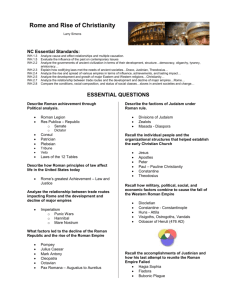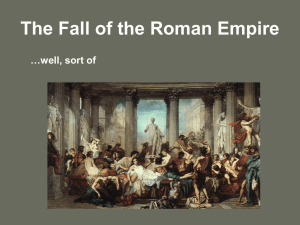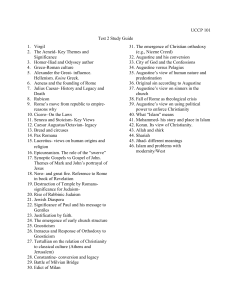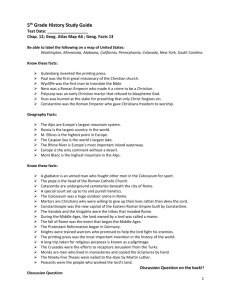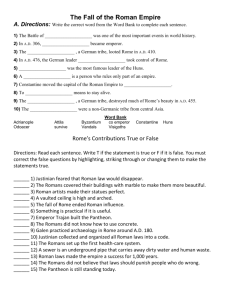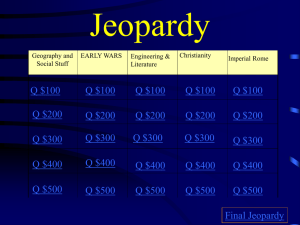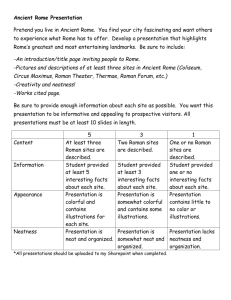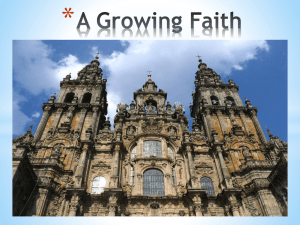Church History I: Christian Development and Roman Disintegration
advertisement
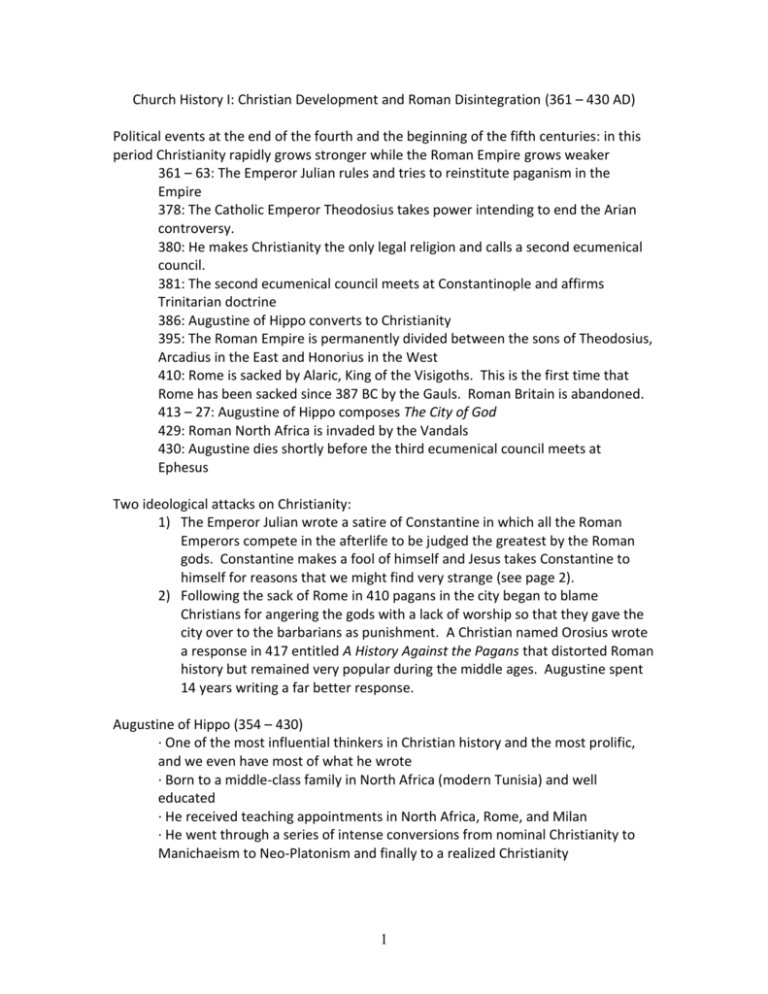
Church History I: Christian Development and Roman Disintegration (361 – 430 AD) Political events at the end of the fourth and the beginning of the fifth centuries: in this period Christianity rapidly grows stronger while the Roman Empire grows weaker 361 – 63: The Emperor Julian rules and tries to reinstitute paganism in the Empire 378: The Catholic Emperor Theodosius takes power intending to end the Arian controversy. 380: He makes Christianity the only legal religion and calls a second ecumenical council. 381: The second ecumenical council meets at Constantinople and affirms Trinitarian doctrine 386: Augustine of Hippo converts to Christianity 395: The Roman Empire is permanently divided between the sons of Theodosius, Arcadius in the East and Honorius in the West 410: Rome is sacked by Alaric, King of the Visigoths. This is the first time that Rome has been sacked since 387 BC by the Gauls. Roman Britain is abandoned. 413 – 27: Augustine of Hippo composes The City of God 429: Roman North Africa is invaded by the Vandals 430: Augustine dies shortly before the third ecumenical council meets at Ephesus Two ideological attacks on Christianity: 1) The Emperor Julian wrote a satire of Constantine in which all the Roman Emperors compete in the afterlife to be judged the greatest by the Roman gods. Constantine makes a fool of himself and Jesus takes Constantine to himself for reasons that we might find very strange (see page 2). 2) Following the sack of Rome in 410 pagans in the city began to blame Christians for angering the gods with a lack of worship so that they gave the city over to the barbarians as punishment. A Christian named Orosius wrote a response in 417 entitled A History Against the Pagans that distorted Roman history but remained very popular during the middle ages. Augustine spent 14 years writing a far better response. Augustine of Hippo (354 – 430) ∙ One of the most influential thinkers in Christian history and the most prolific, and we even have most of what he wrote ∙ Born to a middle-class family in North Africa (modern Tunisia) and well educated ∙ He received teaching appointments in North Africa, Rome, and Milan ∙ He went through a series of intense conversions from nominal Christianity to Manichaeism to Neo-Platonism and finally to a realized Christianity 1 ∙ He returned to North Africa to live a monastic and intellectual life but was pulled into ordained ministry on account of the needs of the Christians in North Africa ∙ He served as bishop of Hippo, the second largest city in Roman North Africa, for nearly forty years until his death in 430 and he wrote brilliantly and prolifically the entire time. ∙ He was involved in three great controversies: 1) the Donatist schism, 2) the Pelagian controversy, and 3) the critique of Christianity by pagans following the sack of Rome. The City of God ∙ Augustine’s magnum opus, it is history, philosophy, and theology all in one ∙ The City of God is opposed to the City of Man, but the two are inextricably mixed and the City of Man is not wholly evil ∙ Christians comprise the City of God but only God can tell who is a Christian and who is not ∙ Christians live in the City of Man and are subject to its laws, but they obey the laws of the City of God which are higher and deal apply to a world beyond the physical (peregrini). ∙ The sack of Rome was not a punishment sent from God or the gods but a reminder that all human kingdoms fail ∙ When the legal apparatus of the Empire began to fade in the middle ages this subtlety was lost and interpreters began to conflate the City of God with the visible church 2
